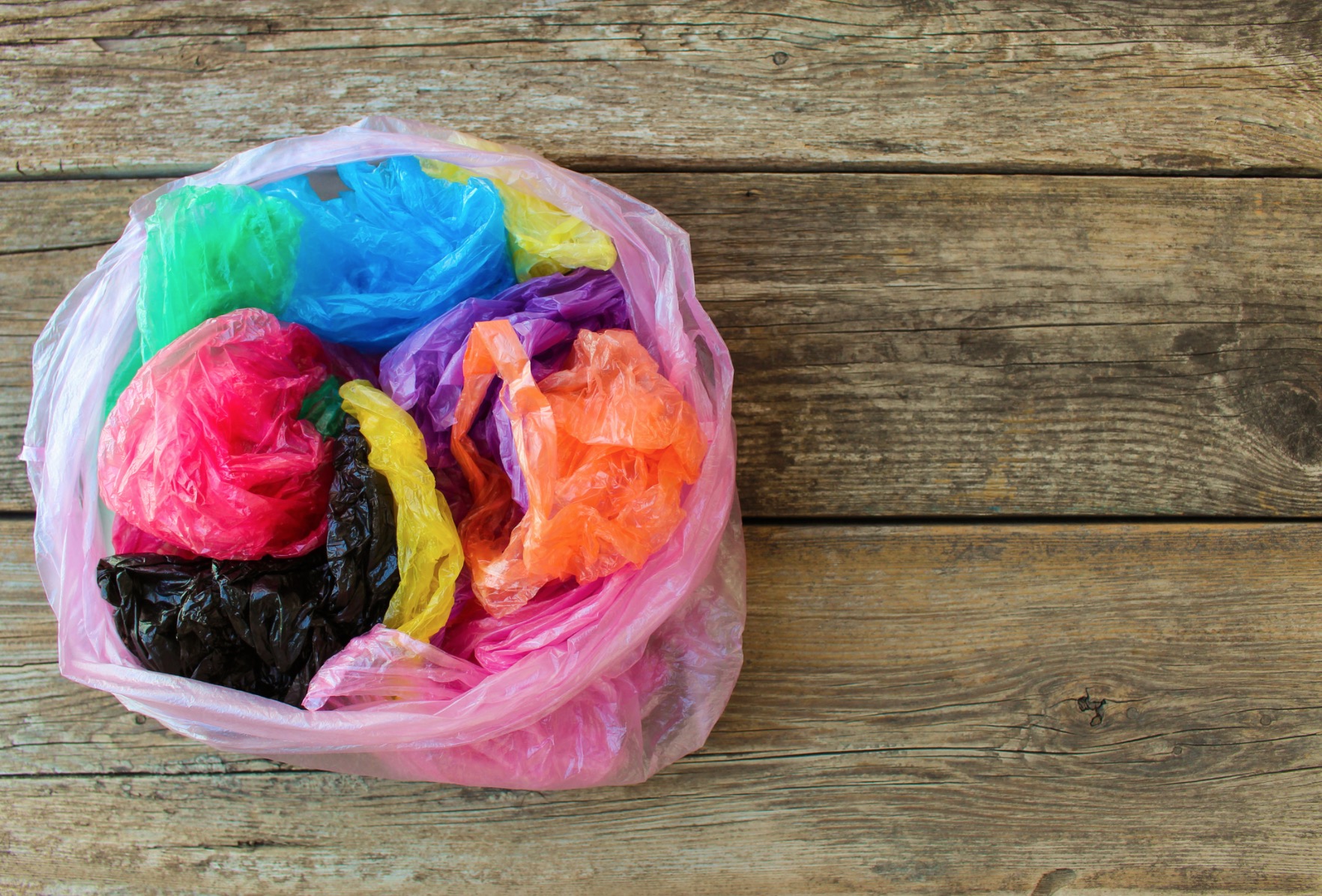By Daniela Ajamie
If you are like most people, you have a stash of plastic grocery bags stuffed onto a shelf or in a cabinet somewhere in your house, and it is overflowing. Sometimes, we keep these bags because we plan to reuse them. Often, though, we keep them because we know that they are bad for the environment, and we aren’t sure how to dispose of them properly.
Soft plastic is problematic for recyclers and for the environment. You’ve probably heard the statistic that it can take hundreds of years for a plastic bag to break down in a landfill — or worse, in the ocean. You’ve also heard that once a plastic bag does break down, through a process called photodegradation, harmful toxins are released into soil and waterways.
When non-recyclables are put into household recycling containers, it contaminates the whole stream, making it more costly to recycle. Workers often have to shut down machines to remove plastic bags and other non-recyclables, wasting valuable time and money. This can even cause an entire batch of recyclables to be sent to the landfill. To avoid undermining good efforts, it’s important for everyone to know what to keep out of the recycle container.
Sixty percent of consumers say they know how to recycle plastic bags correctly. Arizona alone recycled 1,000 tons last year, thanks in large part to Phoenix’s Bag Central Station program and its participating retailers. While that’s great news, Arizona still has a high rate of contamination in the recycling process, with soft plastic being the most common contaminant.
So, what can you do about it? Make sure you’re recycling correctly. It’s easy when you know what to do.
Which soft plastic doesn’t belong in your at-home recycle bin? Here’s a good test: if the plastic can be wrapped around your finger, don’t put it in the recycling container. Instead, recycle soft plastic at retail stores such as Fry’s, Target, Wal-Mart, Safeway, Bashas’,and Lowe’s.

Plastic grocery bags are the most common example of soft plastics that can be recycled, but there are many others. Other items that may be accepted at drop-off stations along with plastic bags include:
- Retail, carry-out, produce, newspaper, bread, and dry-cleaning bags (clean, dry, and free of receipts and clothes hangers).
- Zip-top food-storage bags (clean and dry).
- Plastic shipping envelopes with labels removed, and deflated bubble wrap and air pillows.
- Product wrap on cases of water/soda bottles, paper towels, napkins, disposable cups, bathroom tissue, diapers, and female sanitary products.
- Furniture wrap and electronic wrap.
- Plastic cereal-box liners (unless it tears like paper).
Of course, another option is to utilize reusable bags when grocery shopping. Even if you start by using them once a month, you are putting a dent in the problem.
Always check with your community to see what is accepted in your curbside recycling container. Most cities have this information on their websites. When we are more knowledgeable about household recycling, we are making a positive impact on our communities and our environment. To learn more ways to reduce, reuse and recycle and be rewarded for your efforts, visit recyclebank.com.
Daniela Ajamie is the director of marketing at Recyclebank. Recyclebank is a sustainability education and program that shares interactive tips for reducing, recycling and reusing household items and rewards Phoenix residents for making a positive impact in their community. Sign up at recyclebank.com to learn more.






I would like to suggest that giving people alternatives for daily uses of plastic – plastic food wrap and plastic trash can liners – would be very helpful; maybe you have and I just missed the information. I’ve felt guilty using plastic and have tried to weed it out myself. I discovered Bees Wrap which is an alternative way to wrap cheese, bread, etc and it comes in a lot of sizes. I also found trash bags that are biodegradable. Baby steps but I’ve found I’ve eliminated almost all of my plastic use. Most people don’t even think of these things because the information is not widely available. I wish the city/state would ban the use of plastic bags; if Rwanda can do it the state of Arizona should be able to.
Thanks for listening.
[…] Click here to view original web page at greenlivingaz.com […]
If plastic film makes a loud sound when crinkled, it’s NOT recyclable.
If plastic film makes a soft sound when recycled, it is recyclable.